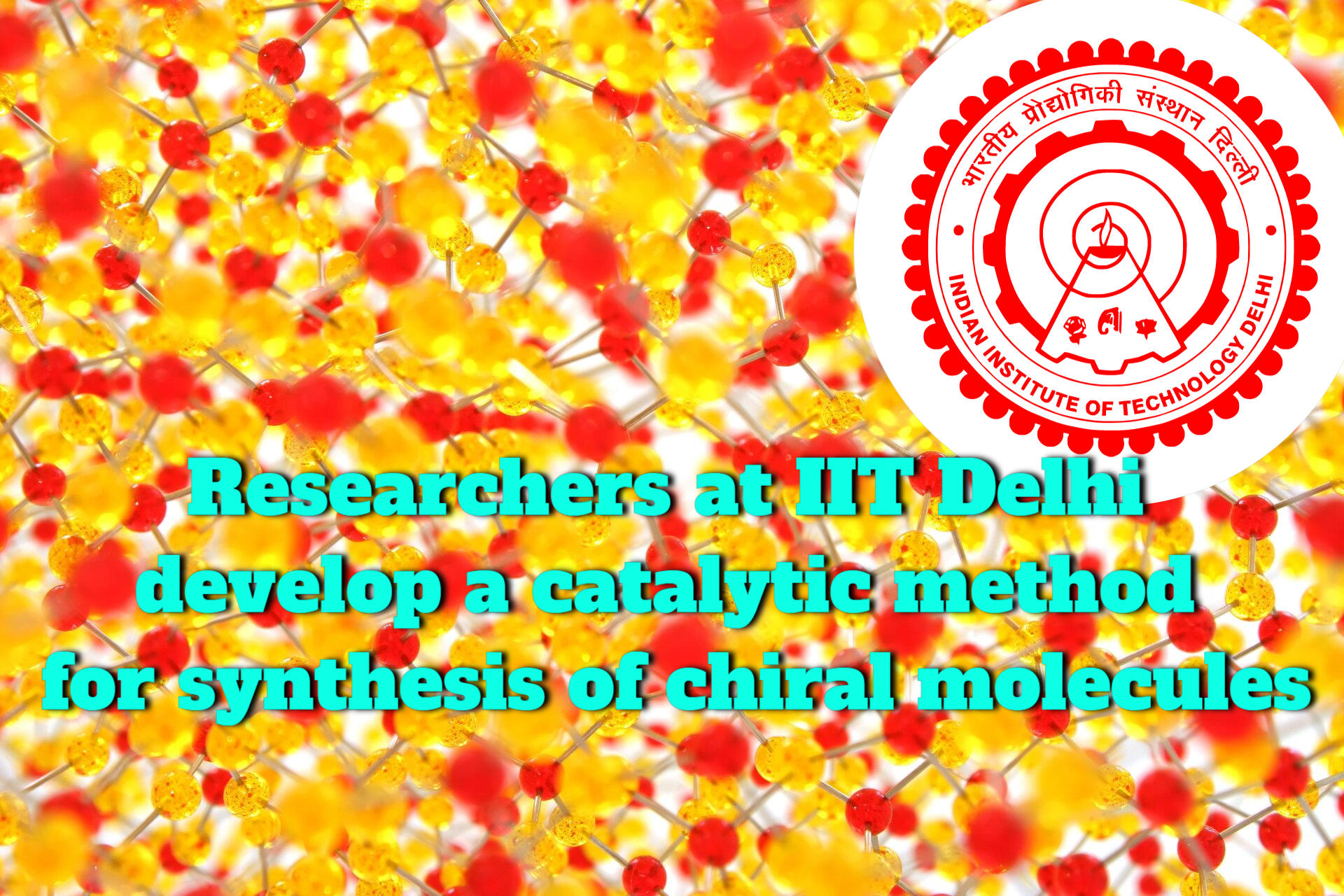Chiral molecules are critical components of medicines, agrochemicals, and physiologically active substances. India is significantly reliant on the importation of Active Pharmaceutical Ingredients (APIs), with chiral compounds accounting for a sizable share of those. The researchers assert that current methods are “expensive and unsustainable.”
Key Highlight:
- Indian Institute of Technique (IIT) Delhi researchers have created a sustainable and cost-effective chiral molecule synthesis catalytic technology.
- Chiral molecules are crucial building blocks for medicines, agrochemicals, and physiologically active substances.
Indian Institute of Technique (IIT) Delhi researchers have created a sustainable and cost-effective chiral molecule synthesis catalytic technology. These chiral molecules are crucial building blocks for medicines, agrochemicals, and physiologically active substances.
According to the study’s findings, India relies substantially on the importation of Active Pharmaceutical Ingredients (APIs), with chiral compounds making up a large share of those APIs.
Catalytic technology developed at IIT Delhi’s Chemistry department, according to Professor Kuntal Manna, may play a crucial role in reducing the country’s dependence on imports of Active Pharmaceutical Ingredients, which also means lower input costs for industry and an increase in the benefit to society.
“Existing approaches are expensive and not environmentally friendly,” he stated.
Using low-cost natural feedstocks and readily available metals, the research team created a Metal Organic Framework (MOF) catalytic method to synthesize enantiomerically pure chiral compounds sustainably and economically, according to Mr Manna.




